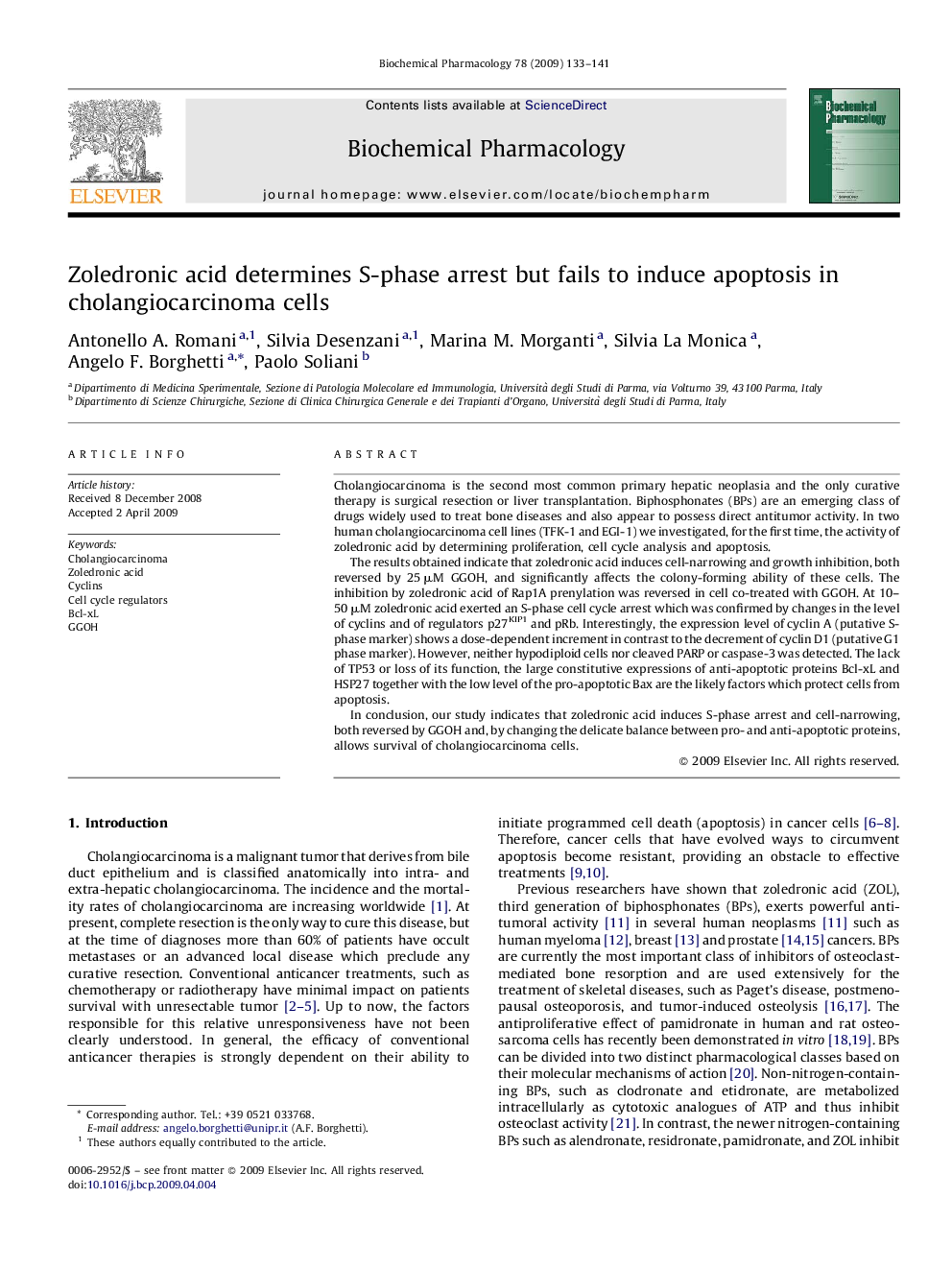| کد مقاله | کد نشریه | سال انتشار | مقاله انگلیسی | نسخه تمام متن |
|---|---|---|---|---|
| 2513574 | 1118423 | 2009 | 9 صفحه PDF | دانلود رایگان |

Cholangiocarcinoma is the second most common primary hepatic neoplasia and the only curative therapy is surgical resection or liver transplantation. Biphosphonates (BPs) are an emerging class of drugs widely used to treat bone diseases and also appear to possess direct antitumor activity. In two human cholangiocarcinoma cell lines (TFK-1 and EGI-1) we investigated, for the first time, the activity of zoledronic acid by determining proliferation, cell cycle analysis and apoptosis.The results obtained indicate that zoledronic acid induces cell-narrowing and growth inhibition, both reversed by 25 μM GGOH, and significantly affects the colony-forming ability of these cells. The inhibition by zoledronic acid of Rap1A prenylation was reversed in cell co-treated with GGOH. At 10–50 μM zoledronic acid exerted an S-phase cell cycle arrest which was confirmed by changes in the level of cyclins and of regulators p27KIP1 and pRb. Interestingly, the expression level of cyclin A (putative S-phase marker) shows a dose-dependent increment in contrast to the decrement of cyclin D1 (putative G1 phase marker). However, neither hypodiploid cells nor cleaved PARP or caspase-3 was detected. The lack of TP53 or loss of its function, the large constitutive expressions of anti-apoptotic proteins Bcl-xL and HSP27 together with the low level of the pro-apoptotic Bax are the likely factors which protect cells from apoptosis.In conclusion, our study indicates that zoledronic acid induces S-phase arrest and cell-narrowing, both reversed by GGOH and, by changing the delicate balance between pro- and anti-apoptotic proteins, allows survival of cholangiocarcinoma cells.
Zoledronic acid (ZOL) induces an S-phase arrest by altering cell cycle regulators and allowing survival of cholangiocarcinoma cells by changing the delicate balance between anti- and pro-apoptotic proteins.Figure optionsDownload as PowerPoint slide
Journal: Biochemical Pharmacology - Volume 78, Issue 2, 15 July 2009, Pages 133–141